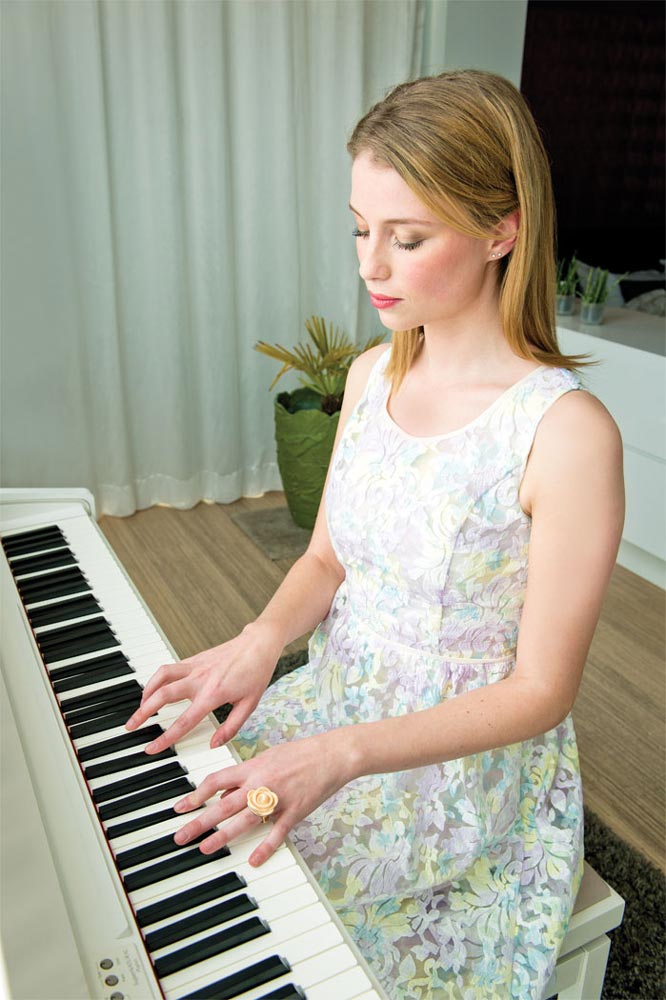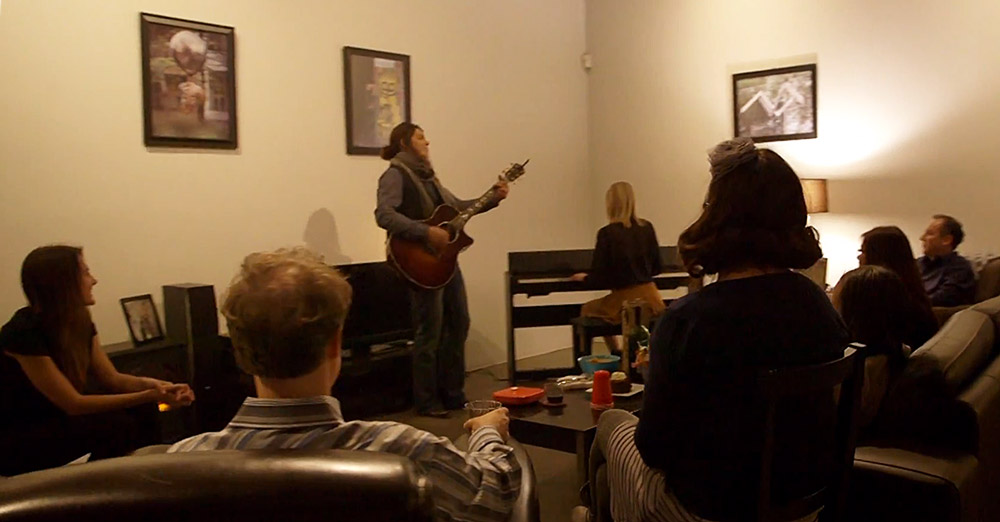My First Roland Piano
Your Very Best First Piano Experience
Tips to Stay Motivated for Piano Practice
 Baby steps.
Baby steps.
Hey, it worked for Bill Murray in What about Bob? Seriously though, don’t try to tackle repertoire that is too difficult. The music should be hard enough that you have to push yourself a bit to play it well, but not so difficult that you can never learn more than a few measures at a time. Work on pieces that provide you with the opportunity to succeed and learn them at your own pace.
Consistency is key.
Remember, slow and steady wins the race. You don’t have to go for hours and hours; it’s okay to practice for a short period of time every day. However, don’t get in the habit of skipping practice sessions and letting too many days pass between them. A little practice every day is better than one long session once a week. Shoot for at least 30 minutes a day—you should be able to see some real progress if you put in this amount of practice time consistently.
Play music that you enjoy.
While it’s very important to learn the “classics” of piano repertoire to develop fundamental skills, it’s also important to play music that is relevant to your personal tastes. Playing the kinds of music that you enjoy listening to on a regular basis is a great way to feel connected to music while practicing the piano. Your practice repertoire shouldn’t consist solely of popular songs, but a couple of your favorite tunes here and there might be the little boost of excitement you need to meet the daily 30-minute practice mark and beyond. There’s sheet music for popular songs in pop, rock, country, and other genres readily available for purchase at music stores or online.
Set small goals for yourself every week.
If you have any sort of competitive bone in your body, then setting mini-goals for yourself can be a great way to make practice more appealing. For example, if you challenge yourself to learn a certain passage of music by the end of the week, you’ll be more likely to try to fulfill that goal, which will result in practicing! Writing down your goals and reviewing them regularly is a good way to keep them fresh in your mind and provide motivation for your everyday practice.
Take a stretch break.
Playing the piano for a sustained period of time can be physically taxing. The thought of sitting with good posture on a piano bench for a long time can be discouraging enough to make me not want to practice all by itself. Before you begin, it’s important to do some basic stretches to help the body stay loose and comfortable as you play.
Here are the steps for one of my favorite stretches:
- Stand up and position your feet a little bit wider than your shoulders. Bend gently, straight down at the waist. Let your upper body hang loose until you feel more relaxed. You can stretch each shoulder further toward the ground, one at a time.
- This stretching routine helps me loosen up my lower back and frees up my shoulders. There are lots more wonderful stretches specifically recommended for pianists that can be found online.
Perform Regularly.
This doesn’t mean learning difficult repertoire every four months to present it to a panel of judges at a recital; it just means that you shouldn’t keep your music to yourself all the time. Playing for friends and family is a low-pressure way to share your progress, and their encouragement can motivate you to practice even more. Plan on sharing your music with others on a regular basis—when you know someone else will be listening at a certain point, you’ll want to be prepared to play well.
